第4章 CHAPTER I TWO CHILDHOODS(2)
Such tyrannical restrains intensify a passion in the hearts of children even more than in those of men; children think of nothing but the forbidden thing, which then becomes irresistibly attractive to them. I was often whipped for my star. Unable to confide in my kind, Itold it all my troubles in that delicious inward prattle with which we stammer our first ideas, just as once we stammered our first words. At twelve years of age, long after I was at school, I still watched that star with indescribable delight,--so deep and lasting are the impressions we receive in the dawn of life.
My brother Charles, five years older than I and as handsome a boy as he now is a man, was the favorite of my father, the idol of my mother, and consequently the sovereign of the house. He was robust and well-made, and had a tutor. I, puny and even sickly, was sent at five years of age as day pupil to a school in the town; taken in the morning and brought back at night by my father's valet. I was sent with a scanty lunch, while my school-fellows brought plenty of good food. This trifling contrast between my privations and their prosperity made me suffer deeply. The famous potted pork prepared at Tours and called "rillettes" and "rillons" was the chief feature of their mid-day meal, between the early breakfast and the parent's dinner, which was ready when we returned from school. This preparation of meat, much prized by certain gourmands, is seldom seen at Tours on aristocratic tables; if I had ever heard of it before I went to school, I certainly had never had the happiness of seeing that brown mess spread on slices of bread and butter. Nevertheless, my desire for those "rillons" was so great that it grew to be a fixed idea, like the longing of an elegant Parisian duchess for the stews cooked by a porter's wife,--longings which, being a woman, she found means to satisfy. Children guess each other's covetousness, just as you are able to read a man's love, by the look in the eyes; consequently I became an admirable butt for ridicule. My comrades, nearly all belonging to the lower bourgeoisie, would show me their "rillons" and ask if I knew how they were made and where they were sold, and why it was that I never had any. They licked their lips as they talked of them--scraps of pork pressed in their own fat and looking like cooked truffles; they inspected my lunch-basket, and finding nothing better than Olivet cheese or dried fruits, they plagued me with questions: "Is that all you have? have you really nothing else?"--speeches which made me realize the difference between my brother and myself.
This contrast between my own abandonment and the happiness of others nipped the roses of my childhood and blighted my budding youth. The first time that I, mistaking my comrades' actions for generosity, put forth my hand to take the dainty I had so long coveted and which was now hypocritically held out to me, my tormentor pulled back his slice to the great delight of his comrades who were expecting that result.
If noble and distinguished minds are, as we often find them, capable of vanity, can we blame the child who weeps when despised and jeered at? Under such a trial many boys would have turned into gluttons and cringing beggars. I fought to escape my persecutors. The courage of despair made me formidable; but I was hated, and thus had no protection against treachery. One evening as I left school I was struck in the back by a handful of small stones tied in a handkerchief. When the valet, who punished the perpetrator, told this to my mother she exclaimed: "That dreadful child! he will always be a torment to us."Finding that I inspired in my schoolmates the same repulsion that was felt for me by my family, I sank into a horrible distrust of myself. Asecond fall of snow checked the seeds that were germinating in my soul. The boys whom I most liked were notorious scamps; this fact roused my pride and I held aloof. Again I was shut up within myself and had no vent for the feelings with which my heart was full. The master of the school, observing that I was gloomy, disliked by my comrades, and always alone, confirmed the family verdict as to my sulky temper. As soon as I could read and write, my mother transferred me to Pont-le-Voy, a school in charge of Oratorians who took boys of my age into a form called the "class of the Latin steps" where dull lads with torpid brains were apt to linger.